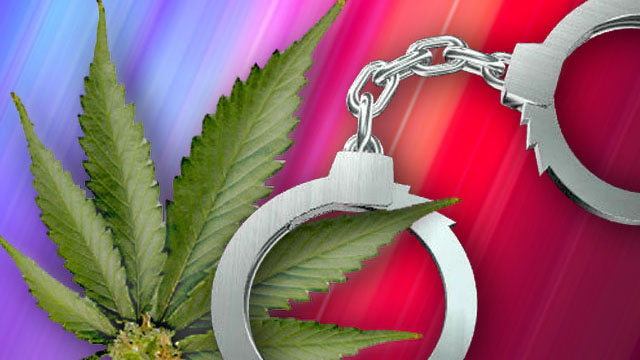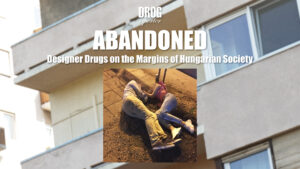ONEJ, a Slovenian cannabis reform NGO, has published a report on the criminalisation of cannabis users in Slovenia – a country which will soon see its first legal supervised injection room. The report also highlights the need to reform the country's drug laws!
The purpose of the report was to determine the situation regarding the penalisation of drug users in Slovenia, in both major and minor cases, and to compare it with the situation in the European Union.
As early as 2000, the Republic of Slovenia adopted a law intended to decriminalise the personal possession and use of all drugs. Unfortunately, the law has remained a dead letter; while in practice, the situation in Slovenia has escalated to such an extent that the level of drug-related crime per capita is among the highest in the EU. A closer analysis of the statistics, however, shows that some Police Directorates (and in consequence, the public prosecutor and the courts) have simply adjusted the low number of actual crimes, by treating as crimes, acts which should have been dealt with as minor offences. As a result, drug users have for several years been criminalised by the judiciary, the police and the public prosecutor, which effectively constitutes a high level of systemic corruption in this sphere.
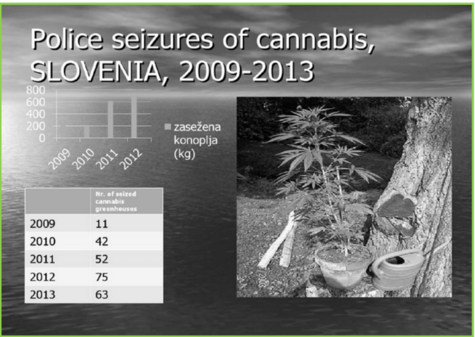
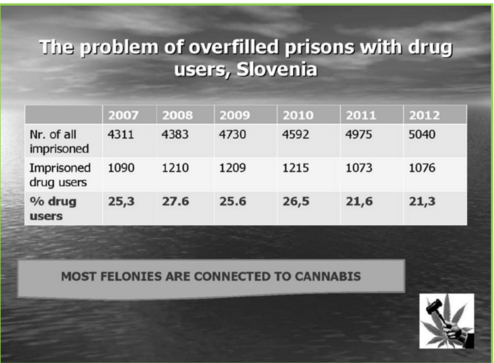
This report is being presented to the international public, as a result of the fact that the Ministry of Health of the RS continues to state, in official publications and reports to the EU, that it is impossible in the Republic of Slovenia to pass a prison sentence for possession of any drug for personal use – an assertion which is not factual. By so doing, the ministry has for years been misleading the European and other international institutionss.
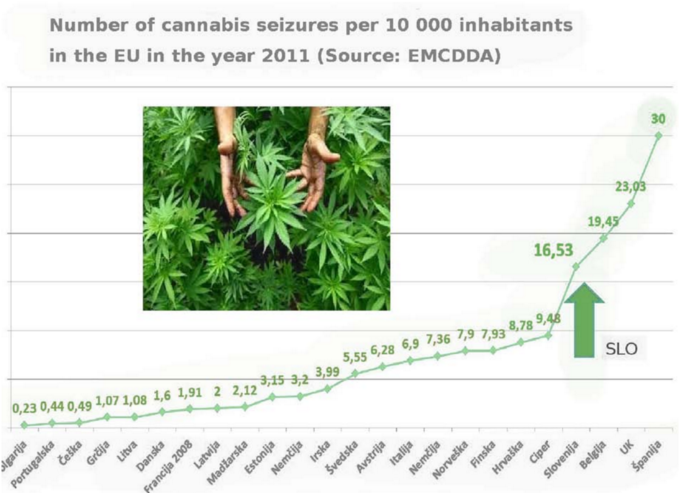
Official police crime statistics indicate significant unintended consequences of the drug control policy, including criminal cases related to cannabis use , both regionally and nationally. These statistics can also indicate, and subsequently influence, the workload and performance level of police forces throughout a country. As a result, the published findings could be misused, in order to mislead people into believing that treating personal cannabis use as a crime is an indicator of cannabis-related public health problems. Also, the police surely have better things to do than arrest people for getting high . In any case, sending drug users to jail is usually an expensive waste of time.
The limited impact of repressive ( »decriminalisation«) cannabis polices on reducing drug markets, as well as the increased harms caused by these policies, need to be acknowledged. The fact is, that the socioeconomic deprivation of the majority of Slovenian people is associated with greater levels of public health problems, including drug-related harms, and can exacerbate the situation.
Božidar Radišič
ONEJ
